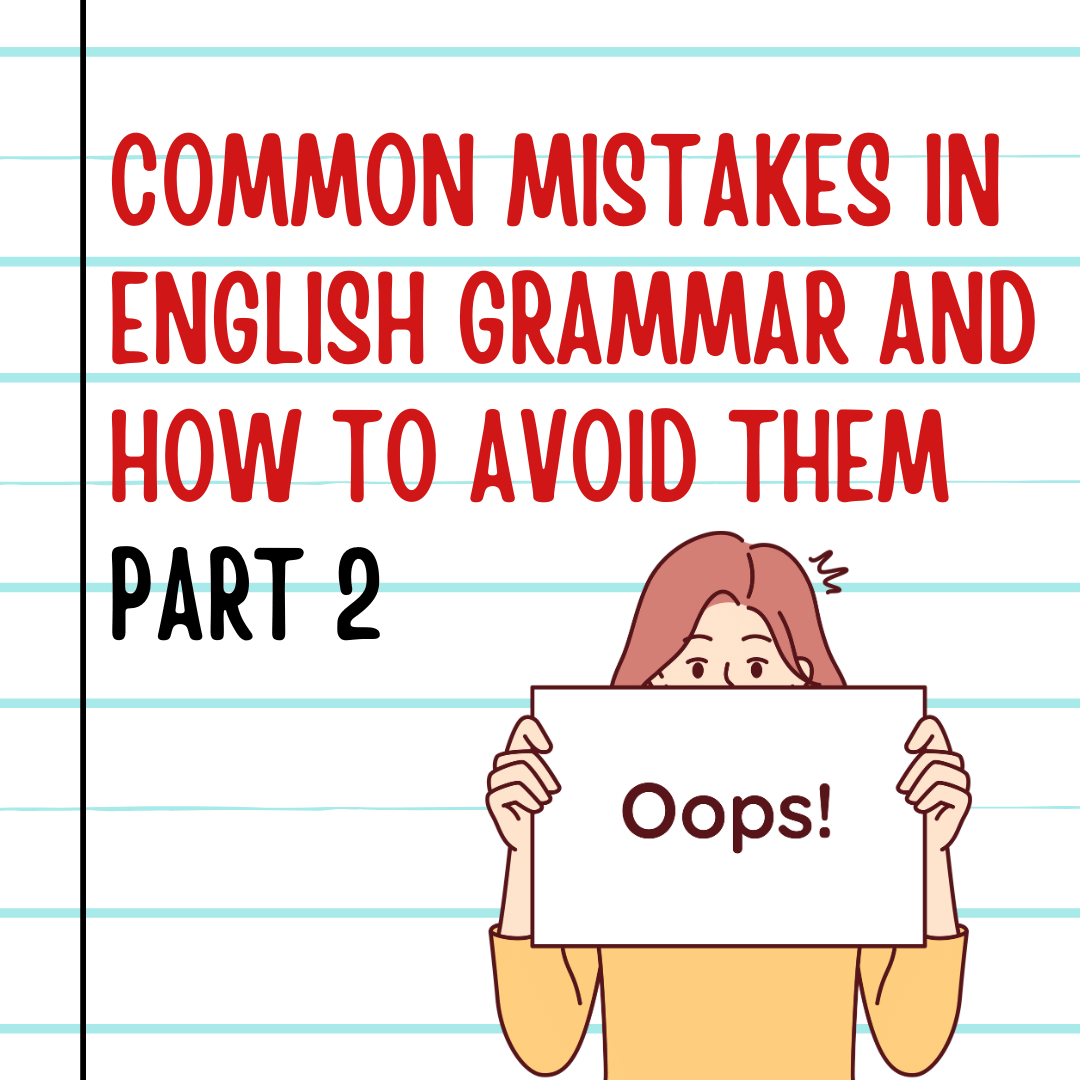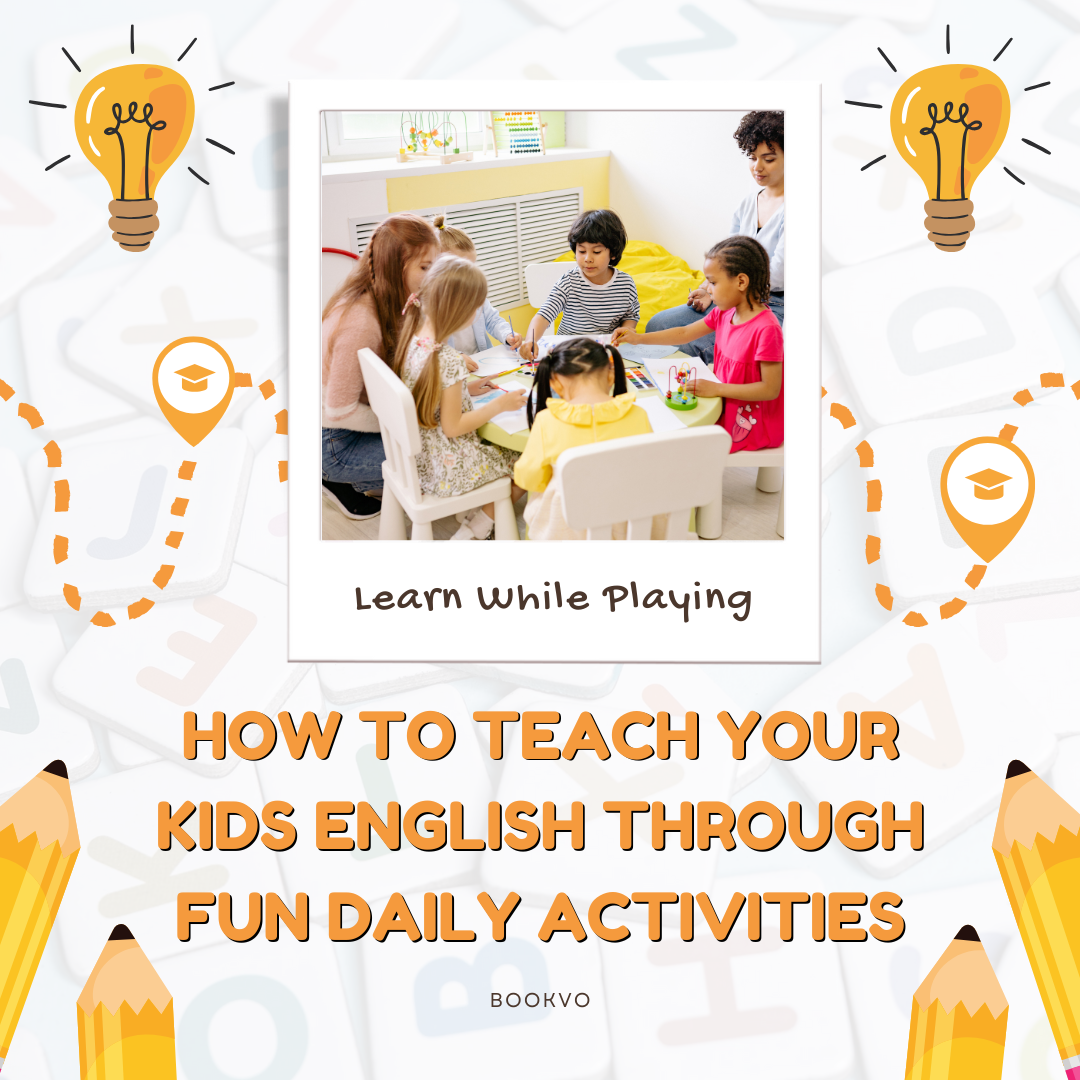Mastering English grammar can be challenging, especially when it comes to avoiding common mistakes. Even the most experienced learners sometimes struggle with errors that can confuse both written and spoken communication. In this article, we'll explore some of the most frequent grammar mistakes and provide you with practical tips to help you avoid them. By becoming aware of these pitfalls, you can improve your language skills and communicate more effectively in English.
In the first part, we explored some common grammar mistakes. Here are a few more frequent errors and tips on how to avoid them.

1. Confusing "To" and "Too"
Mistake: Using "to" instead of "too" or vice versa.
- Incorrect: I want to go too the park.
- Correct: I want to go to the park.
- Incorrect: She is to tired to walk.
- Correct: She is too tired to walk.
How to Avoid: "To" is used as a preposition or part of an infinitive (e.g., to go, to see), while "too" means "also" or "excessively." Double-check your sentence to ensure you're using the correct word.
2. Incorrect Use of "Good" and "Well"
Mistake: Mixing up "good" and "well."
- Incorrect: She sings good.
- Correct: She sings well.
How to Avoid: "Good" is an adjective used to describe nouns, while "well" is an adverb used to describe verbs. When talking about how an action is performed, use "well." Use "good" to describe a state or quality (e.g., a good day).
3. Misusing "A" and "An"
Mistake: Using "a" when "an" should be used, and vice versa.
- Incorrect: She has an car.
- Correct: She has a car.
- Incorrect: He is a honest man.
- Correct: He is an honest man.
How to Avoid: Use "a" before words starting with a consonant sound and "an" before words starting with a vowel sound. The key is to listen to the sound at the beginning of the word, not just the letter.
4. Confusing "Much" and "Many"
Mistake: Using "much" instead of "many" for countable nouns, and vice versa.
- Incorrect: She doesn’t have much friends.
- Correct: She doesn’t have many friends.
How to Avoid: Use "many" with countable nouns (friends, books), and "much" with uncountable nouns (water, time). If you can count it, use "many"; if you can't, use "much."
5. Incorrect Use of "Lie" and "Lay"
Mistake: Confusing the verbs "lie" and "lay."
- Incorrect: I’m going to lay down.
- Correct: I’m going to lie down.
How to Avoid: "Lie" means to recline or rest, while "lay" means to put something down. A simple way to remember this is that "lie" doesn't need an object, but "lay" does. For example, you "lie" down yourself, but you "lay" down a book.
Read our other articles:
Using Gerunds and Infinitives Correctly
6. Misusing "Than" and "Then"
Mistake: Using "then" instead of "than" in comparisons.
- Incorrect: She is taller then her brother.
- Correct: She is taller than her brother.
How to Avoid: Use "than" for comparisons (e.g., bigger than, faster than) and "then" for time or sequence (e.g., first this, then that).
7. Incorrect Use of "Who" and "Whom"
Mistake: Mixing up "who" and "whom."
- Incorrect: Who did you speak to?
- Correct: Whom did you speak to?
How to Avoid: "Who" is used as a subject, while "whom" is used as an object. If you can replace it with "he" or "she," use "who." If you can replace it with "him" or "her," use "whom."
8. Confusing "Your" and "You're"
Mistake: Using "your" instead of "you're" or vice versa.
- Incorrect: Your going to love this book.
- Correct: You're going to love this book.
How to Avoid: "Your" shows possession, while "you're" is a contraction of "you are." If you can replace the word with "you are," then "you're" is the correct choice.
9. Misusing "Farther" and "Further"
Mistake: Using "farther" when "further" is correct, or vice versa.
- Incorrect: I can run further than you.
- Correct: I can run farther than you.
How to Avoid: Use "farther" for physical distances (e.g., farther down the road) and "further" for metaphorical or abstract distances (e.g., further in the discussion).
10. Double Negatives
Mistake: Using two negative words to express a single negative idea.
- Incorrect: I don’t need no help.
- Correct: I don’t need any help.
How to Avoid: Use only one negative word to express a negative idea. Double negatives can make the sentence confusing and mean the opposite of what you intend.
Conclusion
Understanding and correcting common grammar mistakes is an essential step in improving your English proficiency. By paying attention to details such as subject-verb agreement, the correct use of modifiers, and choosing the right words for specific contexts, you can enhance both your writing and speaking skills. Remember, practice and awareness are key to avoiding these errors. Keep revisiting these tips as you continue your language learning journey, and you'll see significant progress in your ability to use English with confidence and accuracy.
Download Bookvo Now!










